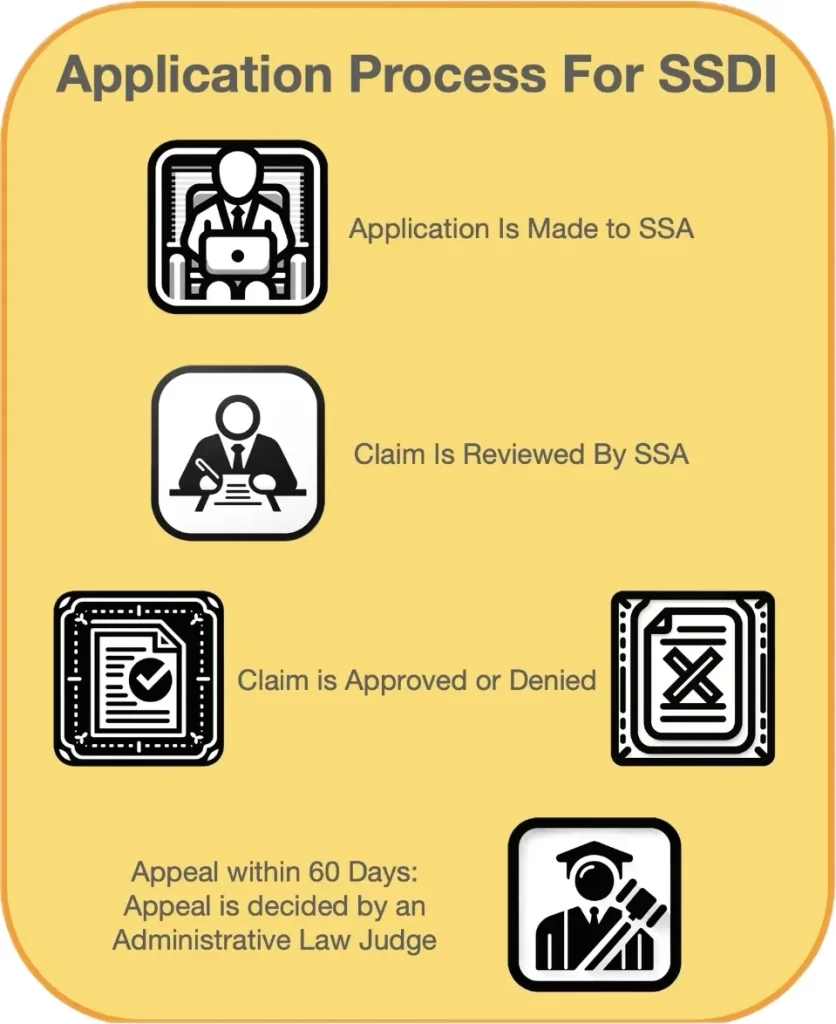Applying for Social Security Disability While on PA Workers Comp
Collecting Social Security Benefits While Out of Work Due to a PA Work Injury
Can I Apply for Disability While on Workers’ Comp?
Work injuries can lead to long time periods out of work. This raises the question of getting Social Security benefits during this time.
Social Security benefits provide financial support to people. This includes disabled workers. They should understand how workplace injuries, disabilities, and the eligibility for Social Security benefits relate to each other.
This blog explores the eligibility criteria. It considers the implications for individuals seeking Social Security benefits while out of work from a work injury.
We will look into the requirements and the application process. Then, see how work related injuries can impact SSDI benefits. We hope to offer insight for those looking for help during their recovery.
Collecting SSDI and Workers’ Comp
Social Security Disability Insurance (SSDI) provides financial assistance to individuals with disabilities. This includes those unable to work because of a qualifying disability. A work-related injury that results in a disability may make an individual eligible to receive such benefits. However, they have to meet a strict criteria.
Criteria for Social Security Disability Insurance
To qualify for severe and long-term disability, the disability must prevent substantial gainful activity. Also, it must last for an expected timeframe of at least 12 months or result in death.
Further, applicants need to collected enough work credits through their employment history to qualify for SSDI benefits. The number of work credits needed for this depend on the age at which the worker becomes disabled. Often, younger workers will require fewer credits.
This system ensures that SSDI support extends fairly to those who have contributed to the Social Security system. But, it also accounts for the difference in work history among the age groups. Understanding the specifics of work credit requirements is important for people to accurately assess their eligibility. This also helps them to prepare for their SSDI application.
SSDI Benefits and Work Injuries or Illnesses
The connection between a work injury and qualifying for SSDI benefits might seem complicated. Not all work injuries or illnesses qualify as disabilities under the SSDI guidelines. Several key factors make this determination:
- The degree of the injury affects the injured worker’s eligibility. How severe of an injury and the nature of that injury will determine if it qualifies as a disability. A temporary injury might not meet the criteria to receive SSDI benefits.
- The duration and prognosis play a crucial role. SSDI benefits require a long-term disability to last for at least 12 months or expect death as the result. A work related injury that causes a temporary disability may not meet this requirement.
- Also considered, the impact on the ability to work. The injury must impair the ability to perform substantial gainful activity. The injury must prevent participation in the previous work or any other substantial work.
@thwesq Workers’ Compensation and Social Security disability have different requirements, but if you meet those requirements, an injured worker can receive both benefits at the same time. #ssdi #workerscomp #workersrights #lawyer #workinjury ♬ original sound – Tom Wing
Workers’ Compensation and Social Security
People seeking SSDI benefits, because of their work injury, must go through the application process. Before starting this process, get all documentation. This means, collecting medical records and work history information. Also, gather any other documents that show the work injury and the resulting disability.

To file a claim, submit an application for SSDI benefits through the Social Security Administration (SSA). To submit an application, go online, call by phone, or visit a local SSA office.
For the disability determination, the SSA will review the application. Next, they will consider medical evidence and other related factors. Then, they will make a determination on the eligibility for SSDI benefits.
If the SSA decides you do not qualify, you can appeal the decision to a judge within 60 days. A lawyer can argue your case to make sure the judge gets the most convincing version of your case. The lawyer can also cross examine the expert SSA will hire to suggest jobs you could perform.
Benefits at the Same Time: Consider the Options
Seeking SSDI benefits because of a work injury should involve careful thought. This could have legal implications.
When collecting both workers’ compensation benefits and social security disability benefits, you may come across a workers’ comp offset. In other words, the SSDI benefits may take a credit for workers’ compensation benefits received for the same disability. Receiving workers’ compensation can affect the total amount of SSDI benefits received.
Legal help can prove beneficial when trying to manage SSDI and workers’ comp. Seeking legal advice from a professional, experienced in SSDI claims and work-related injuries, can provide invaluable guidance.
Conclusion
When out of work due to a work injury, individuals may consider applying for Social Security benefits. As we can see, the eligibility for SSDI benefits depend on many factors. Among them, the severity and duration of the disability.
Understanding this criteria and getting through the SSDI application process can seem tough. Especially, during a period of disability, resulting from a work injury. You can file for Social Security Disability while on Workers’ Compensation. However, you should speak with a lawyer before applying to learn about how they interact.
Let us help you handle the complexity of workers’ compensation laws. Reach out for a free and confidential case evaluation today.




